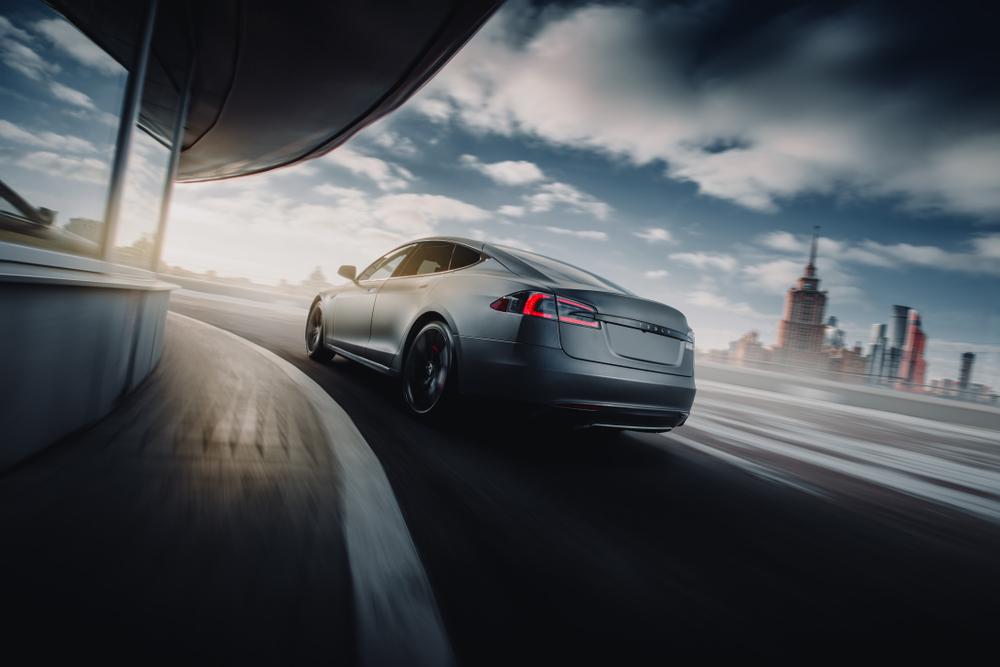Cult favourite tech innovation company Tesla (NASDAQ:TSLA) has seen its share price hit new heights, after soaring to unprecedented levels in February.
This week ended up being a romp for Elon Musk’s favourite project, with the company becoming the highest-value car company without making a profit. This followed a bumper second quarter, where Tesla churned out over 90,000 units.
The production figure was far ahead of analysts’ expectations, and saw the company defy its well-populated mass of shorters, who were ready to see the company repeat something similar to its February-March free-fall, where its shares dipped by almost $600 to $361 apiece. Instead, sales of some Tesla models surpassed expectations by 22%.
Tesla risk factors
While the company are flying high at the moment, its always worth noting one of its defining characteristics: its volatility. This volatility can be broken up into two parts, strategic and financial.
On the financial side, it can be said that the company is loss-making, with huge expenditure on R&D and still struggling to meet demand for its existing range of products. While this is true, output has improved and talks are still underway for the potential ‘Giga-factory’ in Germany. Also, as far as investors are concerned, the company’s share price seems to rally irrespective of its difficulty making a profit, so that’s not fatal consideration.
The Tesla share price itself, however, is certainly an area for debate. Though the company’s shares have rallied 7.95% on Friday, to 1,208.66p per share – to an all-time high – the sustainability of this rise can certainly be called into question. As stated before, Tesla shares hit their previous high of $913 just before Valentine’s Day, before crashing to just over a third of that amount three weeks later. While this was in large part led by Coronavirus hindrances and a correction of the price over-inflating, it is worth considering how rare it is to see such a vast company shed so much of its value in the space of three weeks.
Aside from anything else, and not doubting the company’s potential for an overall upward trajectory, it should make us question whether Tesla is the right place to tuck away our hard-earned cash. By its very nature, as an innovative disruptor, it is exposed to volatility, as it balances not only success and failure but a split focus between ambitious scientific research and business management. This, and the fact that it is such a hotly-discussed and trend-driven company, makes me feel uneasy about where its price will go next. For my money, the next direction will be a second correction, unless the company has some other big news up its sleeve.
What is the company getting wrong?
In terms of strategic volatility, we’ll begin with the obvious point – Elon Musk. I can’t decide whether he’s more arrogant or amusing, though certainly a memorable character. Mr Musk doesn’t appear to conform to many of the demands or expectations put upon him. While his sheer ability to come up with the next big thing may see him through, his erratic personality and sci-fi ambitions are often hard to marry with day-to-day business operations. In one sense he’s a menace, but overall the company wouldn’t be where it is, or what it is, without him at the helm.
More worryingly, but a well-documented concern, are the inevitable challenges an innovative tech company will face. Over the years Tesla has produced everything from cars, to solar panels, to flamethrowers, and with such an array of inventions, there will naturally be some hiccups. Most recently, this has come by way of the National Highway Traffic Safety Administration investigating the Tesla Model S battery cooling system, with fears the component could be at risk of being defective.
It follows from reports as far back as 2012, that the company had used this component, while knowing that the component had a ‘faulty’ design. Such concerns, much like its profit-making ability, may not be fatal, but they’re certainly a distraction, and enough to rock a share price.
Finally, and perhaps most concerning, is a challenge to Tesla’s raison d’etre. Claiming to want to make the world a better place, the company has focused on decarbonising society with its tech, the cornerstone of which is its range of electric vehicles. The issue this mission statement has faced in the last couple of years is the source of the metals for its car battery components.
Reports emerged in 2019 that Tesla had been relying on lithium from mines using child labour, and while injustice and questionable ethics are endemic to the business of resource extraction, it shouldn’t sit well with consumers who look to the company for a more wholesome alternative.
Similarly, and looking ahead, the potential to extract lithium from underwater is becoming a more realistic prospect. In addition to the human cost of their battery production, lithium extraction is toxic to land and soon – maybe – the sea. That kind of ecological damage somewhat dilutes the electric vehicle industry’s moral high ground over fossil fuels, even if more in spirit than in actuality.
My main issue, though, is that Tesla put its eggs in the wrong basket, by prioritising lithium over hydrogen. This isn’t to say that Tesla shouldn’t have opted to be the front-runner of electric vehicle innovation, but rather, as the pioneers of the vehicle industry, it seems like a missed opportunity that they haven’t made strides towards cultivating a much cleaner energy source. Hydrogen tech certainly isn’t new, and should someone else marketize it before Tesla does, it will be a huge blow.
Sadly, however, it doesn’t seem like Tesla has any plans to branch into this energy source, and its customers seem content to gleefully overlook the problematic elements of Tesla’s battery production. As far as Elon Musk and hydrogen fuel cells are concerned, though, we should never say never.




